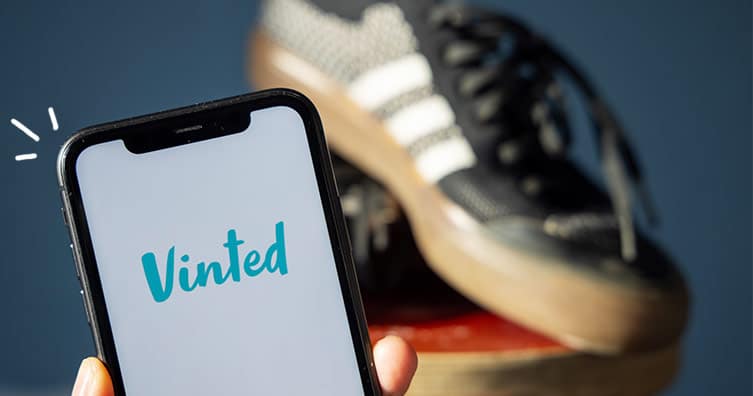How to Spot a Fake Buyer on Vinted – What Every Online Seller Should Know
With over 120 million users worldwide, Vinted has quickly become one of the most popular platforms for buying and selling secondhand fashion. Its clean interface, no-seller-fee model, and focus on sustainability make it a favourite for independent sellers and casual closet clearers alike.
But as the marketplace grows, so does the presence of individuals who exploit it. While Vinted’s community is largely made up of genuine, fashion-loving buyers, it’s not immune to fraud. Fake buyers - those who have no intention of completing a fair sale- are increasingly targeting sellers with a variety of deceptive tactics.
Here’s how to identify the red flags of fake buyers on Vinted, what they typically try to do, and how to make sure your online selling experience stays both profitable and safe.
The Subtle Start: How Fake Buyers First Make Contact
Most fake buyer scams start with a friendly and eager message saying they want to buy your item right away. They often ask to move the conversation off the Vinted app, suggesting email, WhatsApp, or text instead. While this might seem easier, it’s actually a big warning sign. Here’s why:
- Vinted’s messaging system keeps a record to protect both buyers and sellers.
- Moving the chat outside the app means Vinted can’t help if something goes wrong.
- Many scams then send fake links designed to steal your login or payment info.
- These scams are increasing, with a 39% rise reported in the UK in 2024.
To stay safe, always keep communication inside the Vinted app and never share your personal contact details.

Payment Problems: Overpayments and Fake Confirmations
A particularly common Vinted scam targets your trust and your desire to close a sale quickly. The fake buyer may offer to pay more than your listed price, often citing a “rush” or personal urgency, and then promise to send the extra money directly via PayPal or bank transfer. By the way Depop fake buyers have an absolute the same scheme!
Other times, the scam is even more manipulative. You might receive what looks like a legitimate payment confirmation email often branded to resemble a PayPal or bank notification, claiming the funds are being held and will be released once you provide proof of postage.
In reality, the payment doesn’t exist, and the email is a fake. If you ship the item before confirming the payment properly through the Vinted system, you’ll likely lose both the item and the supposed income.
To avoid this, remember: all payments on Vinted should be processed through the platform itself. You’ll receive a clear order confirmation within your dashboard when a sale has gone through. Until then, no shipping label will be provided - and no funds are on their way.
Should You Ship to a Different Address If a Buyer Asks?
One of the more subtle scams reported by Vinted sellers involves a buyer asking you to ship the item to a different address than the one attached to the order. Sometimes, they’ll say they’ve moved house, or that the purchase is a gift for a friend or relative.
While the request might seem harmless, it puts you at risk. Vinted’s seller protection policies apply only when the item is sent to the address listed in the original transaction. If you ship to a different location, and the buyer claims they didn’t receive the item, you won’t be protected, even if you have tracking confirmation.
Sellers are encouraged to politely decline any address changes and ask the buyer to cancel the order and place it again with the correct address. It might feel like a hassle, but it ensures you’re covered in case of a dispute.
If you’re unsure about how Vinted’s shipping system works or what options are available, you can check out this video.
What Should You Do When a Buyer Claims They Didn’t Receive the Item?
It’s a frustrating scenario many sellers know all too well. You’ve packaged the item, sent it via tracked shipping, and even received delivery confirmation. But the buyer contacts you days later to say the parcel never arrived. In some cases, they may open a dispute through Vinted, claiming a refund or reversal.
This tactic plays on timing and ambiguity. If you don’t have solid tracking details, or if the item was sent via untracked mail, the platform may side with the buyer, especially if there’s no way to prove the parcel arrived.
The best way to protect yourself? Always use tracked and insured delivery methods, preferably the shipping options Vinted offers at checkout. These methods not only provide you with proof of postage but also tie the parcel directly to the transaction, which is key in defending your case if the buyer makes a false claim.
It’s also advisable to photograph the item before packaging, as well as the packaging itself, including the label. This level of documentation could be the difference between keeping your money and losing both the product and the payment.
How Can You Tell If a Buyer’s Profile Looks Suspicious?
Most Vinted buyers are genuine, but some fake buyers hide behind incomplete or throwaway profiles. If a buyer’s account:
- Has no reviews or feedback
- Was recently created
- Has no listed items of their own
- Uses a vague or autogenerated username
…it’s worth pausing before proceeding with a transaction. While new users aren't inherently suspicious, these indicators - especially when combined with other red flags like urgency or off-app messaging — should make you cautious.
Don’t hesitate to trust your instincts. Vinted allows you to cancel transactions if something doesn’t feel right, and you can report the user directly from their profile if you believe fraudulent activity is taking place.
Phishing and Account Takeovers
As marketplace fraud evolves, phishing scams have become increasingly advanced. In 2025, Action Fraud reported that nearly 30% of identity theft cases stemmed from credentials stolen through fake login pages or scam emails - many of them linked to resale platforms like Vinted and Facebook Marketplace.
A fake buyer might send you a link under the pretext of confirming a payment, uploading images, or providing shipping instructions. The link may redirect you to a website that looks identical to Vinted’s login page, prompting you to enter your details, which are then harvested.
To stay safe, always check:
- That you’re on the official Vinted domain before entering login credentials.
- The sender's email address - is it from @vinted.co.uk or a suspicious-looking variation?
- Whether the message uses generic language or creates urgency.
Never enter login information via a link sent in a message. If you receive a questionable email, go directly to the Vinted site or app and check your notifications there.
What Are the Best Ways to Protect Yourself from Fake Buyers on Vinted?
The reality is that scams will always exist on popular platforms. But there are consistent ways to reduce your risk:
- Stick to Vinted’s in-app messaging and payment systems
- Use tracked, insured shipping with photo documentation
- Avoid shipping to unverified addresses
- Never click on links or enter login details outside of Vinted’s domain
- Report suspicious users or messages immediately
These small habits form a protective barrier between you and the growing sophistication of online scams.
Grow Your Store, Not Your Risk
Selling online doesn’t have to be stressful. Once you know how to spot fake buyers and understand the common tactics used on platforms like Vinted, it becomes easier to navigate challenges and focus on growing your business.
If you're scaling up and listing across multiple marketplaces, it's worth exploring tools that can make selling more efficient - and secure.
Zipsale offers multichannel listing software designed for sellers who want to post items across Vinted, Depop, eBay, Etsy, and Facebook Marketplace - all from a single dashboard. With built-in listing management and syncing tools, you can reduce errors, track inventory accurately, and keep all records consistent, which is key for spotting and stopping fraud early.
Whether you're selling part-time or turning your side hustle into a full-time business, Zipsale helps you manage it all while staying protected.
Learn more about Zipsale and discover how multichannel selling can increase your revenue, without increasing your risk.



